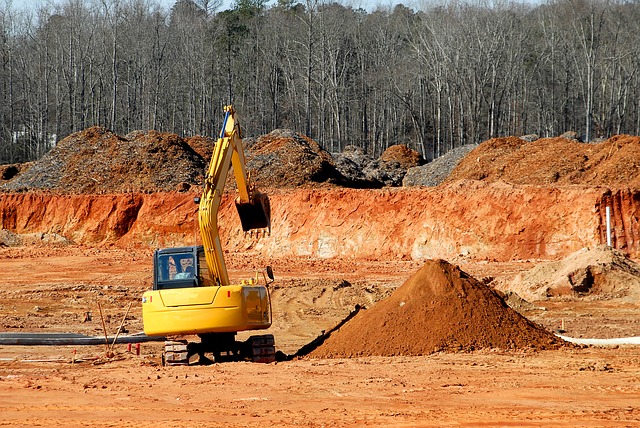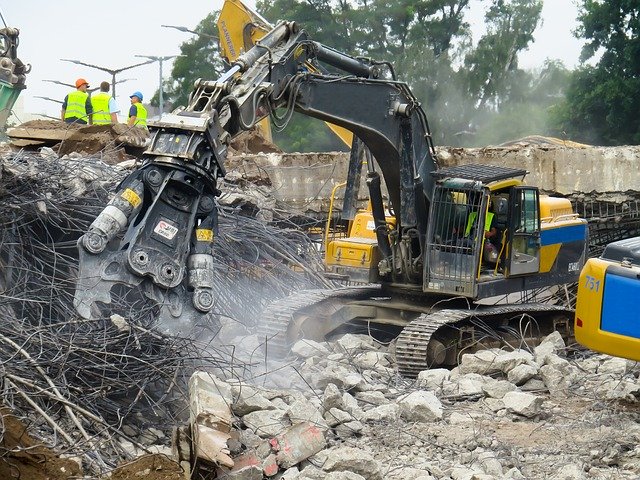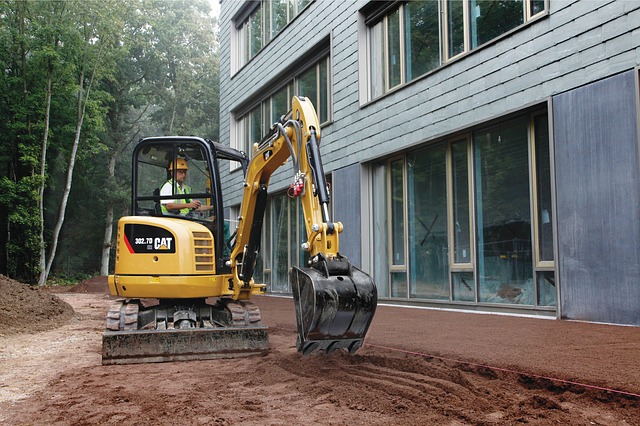
An excavation contractor can prepare the ground, dig trenches, and connect utilities. Other services are also available. They can install sewers, underground utilities, and build roads.
The process of excavating may be as simple as digging a hole or as complex as removing large boulders and tree stumps. Regardless of the size of the job, it is important to remember that an excavation project requires an entire team succeed.
Site preparation includes removing unwanted trees, shrubs, etc. This is a way to make sure that workers and materials can move around the site.
This work also requires careful skill to avoid damaging the surrounding area. To complete any construction project, the landscape must be moved, graded, and made ready to specifications before any work can begin. The excavation process may involve hauling away dirt and debris from the site, so it is important to have the necessary equipment at hand.
Insurance is the best way to ensure that snow removal companies work well. This will protect you from any unforeseeable events and legal action. This should be noted in your contract.
The best commercial excavating contractor installs pipes and utilities that not only look good, but function properly. They are also able to give property owners advice on what would work best for their particular situation.
There are many products that you can choose from to waterproof your house. You can choose between a range of membranes such as polyurethane, HDPE sheets, and bentonite. Some manufacturers recommend using a mixture of products.
The most expensive snow removal service charges anywhere from $200 up to $600 per year. This is typically a one-time payment. However, if you have a snow removal company that provides services throughout the year, this may not be an issue.
In the early months of the year, before snow accumulations start to occur, it is the best time to call snow removal contractors. This gives you an opportunity to review several bids and narrow your search.
If you're considering new construction on your property, one of the first questions you should ask is "What excavating contractor installs?" You can expect a contractor to perform a few basic procedures, no matter what kind of project it is. These include foundation waterproofing or foundation installation, commercial digging, site preparation, demolition, or snow removal.
The soil must also be tested as part of site preparation. It is possible to test the soil for its properties like density and tensile power. This allows you the ability to determine whether the soil is suitable for building. You may need soil testing depending on the site.
Also, consider the soil type on the site. This will impact the cost of your septic system installation. The soil can have an effect on the absorption of wastewater if it is too heavy. It can settle into voids if the soil is too soft. These spaces can be filled with bedding materials like gravel, sand and washed rocks.

Demolition companies should be able to provide safety measures and a detailed demolition plan. Demolition experts will be able to provide accurate timelines for the project.
An excavating contractor has the tools to build a more attractive terrain than a flat lawn. Flat lawns can be sloped to improve runoff control. It does not matter if you are building a new home or renovating an old one, foundation waterproofing can be a great way to keep the water out. It is important to establish a drainage system that keeps water away from your house.
Most demolition contractors are experienced for many years. They have the knowledge and equipment necessary to do the job safely.
These services are especially useful for small jobs such as landscaping and tamping down the soil to build up a new lawn. Mini excavation services are also helpful for drainage systems, septic tank installation and repair, and more. So whether you need to dig a hole or just remove some soil from a project, excavation contractors can help you get the job done right.
During the construction phase of a new home, site preparation is one of the most important things an excavating contractor can install. It involves a number of steps that help optimize your construction project. Besides helping to make your life easier, proper preparation can also help to ensure your new home's durability.
The type of utility excavating you do will depend on the type of utility lines on the project site. For example, sewer lines need to be excavated via a trenching method, while water mains should be excavated via an open-hole method. Both methods require that the excavator has access to sewer or water lines.
A professional excavation company will also help you obtain permits, manage your property permits, and ensure that your project is safe. They can help you disconnect and repair utilities, such as gas and electricity lines, before demolition.
All utilities including electricity and gas lines must be disconnected before demolition. This is done to avoid hazards and reduce the chance of injury during demolition.
To dig the trench you will also require a trenching instrument. You can either rent one or buy one. Rental costs vary by location. A good trencher will be able to handle a 10" and 12" trenching chain.

The best time to call a snow removal contractor is in the early months of the season, before the snow starts to accumulate. This also gives you the opportunity to compare proposals and narrow your search.
It doesn't really matter if you have concrete patios, sidewalks, or driveways, it can be hard to remove. Consider the size and cost of the concrete slab, as well the reinforcements that were used to support it. Once you have decided on a plan, you can either hire someone to help or do the work yourself.
Other steps you need to consider include stockpiling of gravel. This can help prevent water flowing freely. Also, make sure that your site conforms with local zoning laws.
Site preparation also includes laying a foundation for your new home. You can do this by excavating and leveling the ground.
To properly waterproof a foundation, you need to prepare the surface. To do this, you need to remove dirt, debris, and loose material. Also, you need to lay out your waterproofing plan well in advance of your construction project.
A contractor will take down a building to remove any traces of the interior. This includes explosives and wrecking ball. The debris is then removed and hauled off-site.
You have to follow certain steps whether you are installing your own toilet tank or hiring a contractor. It is important to get permission from your local government to excavate.
Demolition companies should have the ability to provide safety measures as well as a detailed demolition program. Demolition experts can provide an accurate timeline for the project.
An excavation contractor will work with the general contractor, ensuring that construction is on track. They will prepare the area for utilities by digging trenches. They will also clean up the area and protect sensitive artifacts.
An excavation company can also help with a new paving project. This will increase the curb appeal of your property and increase its value.

If your land is located in a high-cost area, you may have to pay extra to get a demolition permit. In California, the Contractors State License Board (CSLB) is the governing body for all contractors. They receive thousands of applications every month.
Excavating is a dangerous activity. Proper engineering is crucial to ensure the safety of workers and passersby. Employing a skilled contractor will help prevent soil compaction. This will also ensure that landslides don't occur.
An excavation contractor can install trenches, install utilities, and prepare the landscape. They will also perform a number of other services. They can build roads, dig ditches for water lines, and install sewers and other underground utilities.
All utilities, including gas, must be disconnected before demolition. This is done in order to prevent injuries and hazards.
A protective board is also included in foundation waterproofing systems. This protects the elastic coating. These systems may be applied by hand, with a trowel, or with a hammer.
